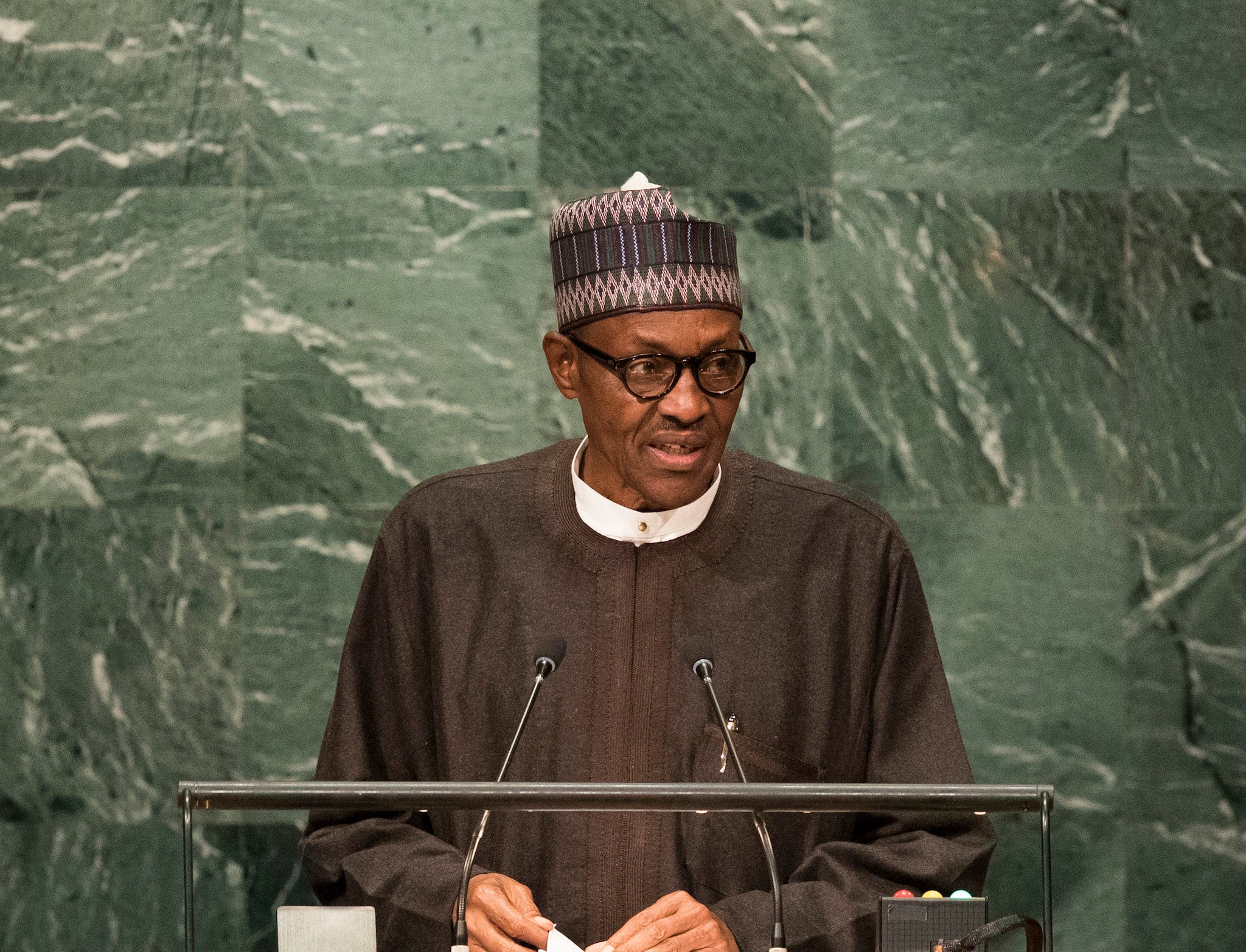Nigeria requests UN help in talks with Boko Haram to bring back Chibok girls
It is the first time Nigeria has publicly discussed the prospect of talks in advance

Your support helps us to tell the story
From reproductive rights to climate change to Big Tech, The Independent is on the ground when the story is developing. Whether it's investigating the financials of Elon Musk's pro-Trump PAC or producing our latest documentary, 'The A Word', which shines a light on the American women fighting for reproductive rights, we know how important it is to parse out the facts from the messaging.
At such a critical moment in US history, we need reporters on the ground. Your donation allows us to keep sending journalists to speak to both sides of the story.
The Independent is trusted by Americans across the entire political spectrum. And unlike many other quality news outlets, we choose not to lock Americans out of our reporting and analysis with paywalls. We believe quality journalism should be available to everyone, paid for by those who can afford it.
Your support makes all the difference.Nigeria has said it would welcome UN involvement in negotiating with Boko Haram over the release of more than 200 schoolgirls kidnapped in Chibok more than two years ago.
President Muhammadu Buhari invited the UN to act as an intermediary in talks when he met with the outgoing Secretary-General Ban Ki-moon on Wednesday, on the sidelines of the annual UN General Assembly in New York.
In a tacit acceptance that his government’s military approach to bringing back the 217 schoolgirls has failed, Mr Buhari said Nigeria would “welcome intermediaries such as UN outfits, to step in”.
In practice, the UN is not necessarily the obvious first choice to act as a go-between in the talks. It has itself been a victim of Boko Haram’s indiscriminate terror attacks, including a car bomb on the UN headquarters in Abuja which killed 21 people.
But Mr Buhari’s request was also a “show of commitment” to the UN and to Mr Ban, who steps down as Secretary-General at the end of this year, according to a statement from presidential adviser Femi Adesina.
If the UN agrees to help, it would be the first publicly discussed negotiations between the government and Boko Haram, whose insurgency has displaced more than two million people and led to the deaths of more than 15,000 in just seven years.
Mr Buhari told Mr Ban his government was “willing to bend over backwards” to bring back the girls, whose kidnapping sparked an international outcry.
But he said finding credible Boko Haram leaders for negotiations has been difficult, especially because of the current leadership struggle among the extremists.
The girls were last heard of when around 50 of them appeared in a video released by the Boko Haram faction led by Abubakar Shekau in August.
Fighters loyal to Shekau have since clashed with supporters of Abu Musab al-Barnawi, who was named the group’s new leader when his faction pledged allegiance to Isis.
“The challenge is in getting credible and bona fide leadership of Boko Haram to discuss with,” Mr Buhari said.
“The split in the insurgent group is not helping matters. Government had reached out, ready to negotiate, but it became difficult to identify credible leaders,” said the president.
Mr Buhari said for the first time last year that he was ready to negotiate over the release of the girls, though he provided no further details.
Last week, Nigeria’s information minister Lai Mohammed revealed the government had nearly secured the girls’ release three times, but negotiations collapsed each time.
In its August video, Boko Haram said it was willing to release some of the girls as part of a prisoner release. The government said it would let the militants chose their preferred NGO to act as intermediary, but the group has not commented on that proposal.
Emmanuel Ogebe, an activist with the Bring Back Our Girls campaign, suggested Nigeria engage France as a negotiator in the matter. French officials have had some success helping secure the release of Boko Haram kidnapping victims in neighbouring Cameroon.
Of the 276 girls kidnapped from a single secondary school in Chibok, Borno state on the night of 14 April 2014, dozens were able to escape in the first few hours as they were being taken away in trucks.
For two years, however, almost nothing was known about their whereabouts beyond the occasional hostage videos released by the militants.
That was until May 2016, when one of the missing girls was found wondering on the edge of the Sambisa Forest by vigilantes loyal to the government.
Amina Ali said the remaining girls were still in the forest, though a number had died in the intervening years. She is currently being held in a government facility, ostensibly for counselling, though rights groups have raised concerns she may have become a detainee.
Join our commenting forum
Join thought-provoking conversations, follow other Independent readers and see their replies
Comments